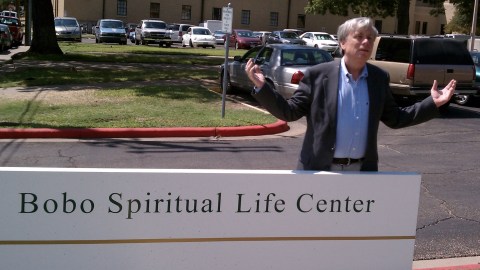The Professor as 21st Century Worker

So the respected New America foundation—taking its cue from former Princeton president William G. Bowen—is all about reconfiguring higher education along the lines of the 21st century high-tech, highly competitive global marketplace. What we have worldwide is a collapse of the various safety nets that compromise productivity. So gone or on the way out are unions, pensions, employee and employer loyalty, secure niche-career positions in corporations, and entitlements of all kinds. More and more employees are going to be independent contractors, developing and constantly updating flexible skills to fit the needs of employers. Not only should higher education mainly be about preparing students for this marketplace, our colleges and universities should be transformed to be part of that marketplace.
So the main goal of higher education should be about increasing the “labor productivity” of professors. Our colleges, as a result, could easily become much more efficient and affordable.
“Face-to-face instruction” is expensive, and so there should be less of it. That means “fewer faces on the faculty side.” We can expect that salaries of most professors will drop as the demand for them does. It’s not that there’s no benefit in the personal touch that comes with being taught by a real person. But the price in inefficiency is often too high. I can’t help but be reminded of the argument that’s been made over the last couple of generations against old-fashioned face-to-face or conversational psychiatry: It’s expensive, and the results are unreliable. The desired changes in mood, behavior, and even skill sets can be achieved efficiently in other ways. That argument might be offensive if your primary concern is the “soul” of the patient or student in some Socratic sense. But our more modest and more urgent goal is now to achieve the competencies required to flourish in the marketplace. Certainly Socrates or Freud had nothing much to teach about that.
We see throughout the marketplace the efficiencies that are achieved through the division of labor. For, say, Wal-Mart or the Olive Garden, the “mental labor” of developing a routine that maximizes customer services and profitability is done at some centralized location. Then the employees in the particular stores follow the script that’s been developed for them. Sure, they’re far from cogs in a machine, but productivity really does demand that their discretion be minimized. Why can’t the same be done in “routinizing aspects of the student learning experience and thus reducing the day-to-day discretion of individual professors.” We know the competencies students need to have, and we know the best way to lead them to acquire them. Why should we allow professors to choose against what the experts know about “best practices”? Give professors too much discretion and one result might be flashes of brilliance, but the more common result is the self-indulgence of time wasted. At Wal-mart, even managers are fired who unproductively deviate too far from the script, why not at colleges and universities?
Professors—much like inefficient medieval artisans or whatever—will continue to resist being held accountable for their productivity. They’ll appeal to tradition, not realizing, as Marx wrote, that capitalism rips the “halos” off the vain claims made for beautiful and useless pursuits. If you want money, you should have to work—and the proof that you worked is measurable results.
That means, of course, we shouldn’t make the mistake of reducing professors’ requirements for teaching productivity by their “research productivity.” That usually really means writing articles nobody reads and don’t really do anyone any measurable good. Nobody should be paying anyone to write more articles on Shakespeare, especially when you consider how bad—how ephemeral—most of them are. Allegedly cutting-edge Shakespeare breakthroughs don’t do anything to prepare students for the competitive lives they’ll have to lead.
Then there’s the tradition of “shared governance”—where faculty members have control over the curriculum and a big say in running the institution. What’s wrong with that model is that when it comes to the “mental labor” connected with maximizing efficiency and productivity, professors are typically pretty clueless. Their self-indulgence needs to be reined in by the experts, and the institution’s priorities and goals need to be set by those who really know what they’re doing. The truth is that colleges and universities increasingly think of instructors as workers just like any other, and they should be paid what the market will bear. That’s why colleges and universities are bypassing the lazy and overpaid tenured professors through the profligate use of adjuncts. “Governance is for the governors” is the model best suited for the division of labor directed by a cognitive elite “well suited to the digital world.”
What about tenure? The best—meaning the most marketable—scholars don’t need it. Few faculty indeed use it “speak truth to administrative power”; the number is small enough and shrinking fast enough to make little practical difference. Professors routinely surrender “hard cash for job security.” And they end up being stuck at a particular institution for life, stuck with whatever capricious policy a particular administration imposes on them. Tenure gives faculty members less—not more—bargaining power. It keeps them from having the power of selling one’s labor for what it’s really worth. So everywhere you look, the tenured faculty wallow in a kind of culture of grievance that’s personally demoralizing, as well as demoralizing for the institution.
And academic freedom? It’s way out of control. It makes no sense that professors be able to teach whatever they want whenever they want, satisfying their own curiosity and careerist ambitions instead of the real needs of students. And certainly professors shouldn’t be able to teach any way they want, without being held accountable to what students actually learn. Teaching method—like any other method—can be standardized, and academic freedom, to repeat, shouldn’t be used to justify willful deviation from best practices.
A piece of good news is that, through the right employment of the latest technology, higher education, like every other field of work, might be able to trim quite radically top-heavy administrations. Professors, working at will as independent contractors properly incentivized to deliver the most relevant skills and competencies to the greatest numbers of students, would at least be freed up from all the baloney that flows from administrators attending to concerns and amenities that have little to do with educational productivity—from all that “political correctness” to the shameful waste of time and money that is intercollegiate athletics.
The best or most savvy professors would make a lot more money, and they will have the satisfaction of knowing that what they’re doing is judged to be worth doing. Now it’s true their livelihoods will be a lot more contingent and vulnerable and more subject to market forces beyond their control. But why should they—and no one else—not have to adjust their priorities to the world in which we live?
There’s quite the vision here, and I readily get sucked in by the joy of figuring out all its details. A slight problem is it means the end of liberal education as higher education.





